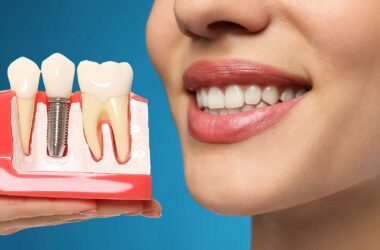Acne is a common skin condition that affects millions of people worldwide. Despite its prevalence, finding the right treatment can be challenging due to the variety of causes and skin types. This guide will explore the science behind acne, effective treatments, and practical tips to help you achieve clearer skin.
Understanding Acne: Causes and Types
Acne occurs when hair follicles become clogged with oil (sebum) and dead skin cells. This blockage can lead to whiteheads, blackheads, pimples, and even deeper cysts and nodules. Several factors contribute to acne:
- Hormonal Changes
- Adolescence: Hormonal fluctuations during puberty increase oil production, leading to clogged pores.
- Menstrual Cycle: Women may experience breakouts due to hormonal changes during their menstrual cycle.
- Pregnancy and Birth Control: Hormonal shifts during pregnancy or changes in birth control can also trigger acne.
- Genetics
- Family History: If your parents had acne, you are more likely to develop it as well.
- Diet
- High Glycemic Foods: Diets high in sugar and refined carbohydrates can exacerbate acne.
- Dairy Products: Some studies suggest a link between dairy consumption and acne.
- Stress
- Cortisol Levels: Stress increases cortisol levels, which can stimulate oil production and lead to breakouts.
- Skincare Products
- Comedogenic Ingredients: Using products that clog pores can contribute to acne.
Effective Acne Treatments
- Topical Treatments
- Benzoyl Peroxide: This over-the-counter treatment kills acne-causing bacteria and reduces inflammation. It is available in various strengths and formulations.
- Salicylic Acid: A beta-hydroxy acid (BHA) that exfoliates the skin and unclogs pores, making it effective for treating blackheads and whiteheads.
- Retinoids: Derived from vitamin A, retinoids promote cell turnover and prevent clogged pores. Prescription options include tretinoin and adapalene.
- Topical Antibiotics: These treatments reduce bacteria and inflammation on the skin. Common options include clindamycin and erythromycin.
- Oral Medications
- Oral Antibiotics: Used for moderate to severe acne, oral antibiotics like doxycycline and minocycline reduce bacteria and inflammation.
- Hormonal Treatments: Birth control pills and anti-androgen medications like spironolactone can help regulate hormones and reduce acne in women.
- Isotretinoin: A powerful oral retinoid reserved for severe acne cases. It reduces oil production, prevents clogged pores, and has long-lasting effects.
- In-Office Treatments
- Chemical Peels: These treatments use acids to exfoliate the skin, unclog pores, and reduce acne scars.
- Laser and Light Therapy: Laser treatments can reduce bacteria and inflammation, while light therapy targets acne-causing bacteria.
- Drainage and Extraction: For large cysts, dermatologists can perform procedures to drain and remove them, reducing pain and preventing scarring.
- Natural and Home Remedies
- Tea Tree Oil: Known for its antibacterial properties, tea tree oil can be an effective spot treatment for acne.
- Aloe Vera: Its anti-inflammatory properties can soothe irritated skin and reduce redness.
- Honey and Cinnamon: Both have antibacterial properties and can be used as a mask to reduce acne.
Practical Tips for Managing Acne
- Consistent Skincare Routine
- Gentle Cleansing: Use a mild cleanser twice a day to remove dirt, oil, and makeup without irritating the skin.
- Moisturizing: Choose a non-comedogenic moisturizer to keep your skin hydrated without clogging pores.
- Sun Protection: Apply a broad-spectrum sunscreen daily to protect your skin from UV damage and prevent hyperpigmentation.
- Healthy Lifestyle Choices
- Balanced Diet: Focus on a diet rich in fruits, vegetables, whole grains, and lean proteins. Limit high glycemic foods and dairy products if they trigger your acne.
- Hydration: Drink plenty of water to keep your skin hydrated and support overall health.
- Stress Management: Practice stress-reducing techniques like meditation, yoga, or deep breathing exercises to keep cortisol levels in check.
- Avoiding Common Triggers
- Touching Your Face: Avoid touching your face to prevent transferring bacteria and oil from your hands to your skin.
- Hair Products: Keep hair products away from your face, as they can clog pores and cause breakouts.
- Makeup: Choose non-comedogenic makeup products and remove makeup thoroughly before bed.
Debunking Acne Myths
- Myth: Acne is caused by poor hygiene.
- Fact: Acne is not caused by dirty skin. Over-washing or scrubbing can actually irritate the skin and worsen acne.
- Myth: Only teenagers get acne.
- Fact: Acne can affect people of all ages, including adults. Hormonal changes, stress, and other factors can contribute to adult acne.
- Myth: Popping pimples helps them heal faster.
- Fact: Popping pimples can push bacteria deeper into the skin, leading to more inflammation and potential scarring. It’s best to leave them alone or seek professional treatment.
Frequently Asked Questions about Acne Treatment
Q: Can diet really affect acne?
- A: Yes, diet can play a role in acne development. High glycemic foods and dairy products have been linked to increased breakouts in some individuals. Eating a balanced diet with plenty of fruits, vegetables, and whole grains can help improve skin health.
Q: How long does it take to see results from acne treatments?
- A: The time it takes to see results can vary depending on the treatment and the severity of the acne. Topical treatments may take 4-8 weeks to show improvement, while oral medications and in-office treatments may provide faster results. Consistency is key for long-term success.
Q: Are there any side effects to acne treatments?
- A: Some acne treatments can cause side effects such as dryness, redness, and irritation. It’s important to follow your dermatologist’s recommendations and use products as directed. If you experience severe side effects, consult your healthcare provider for alternative options.







